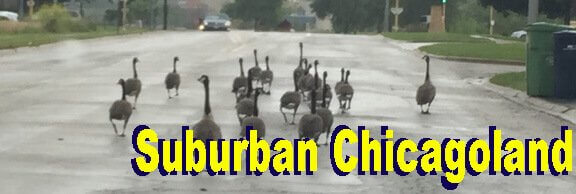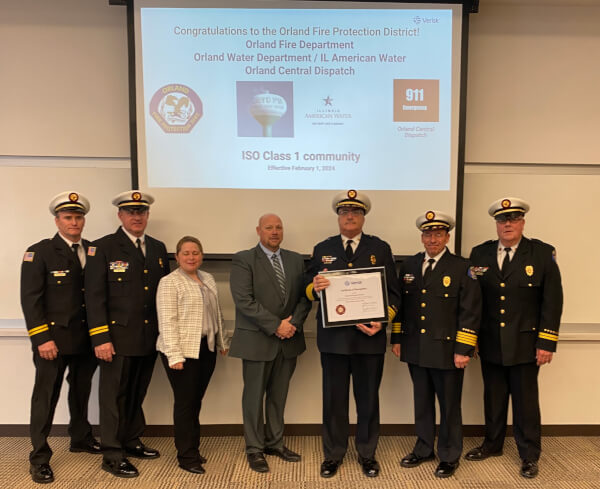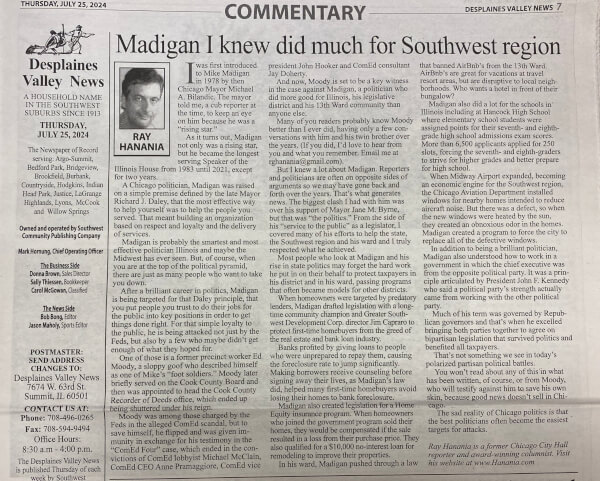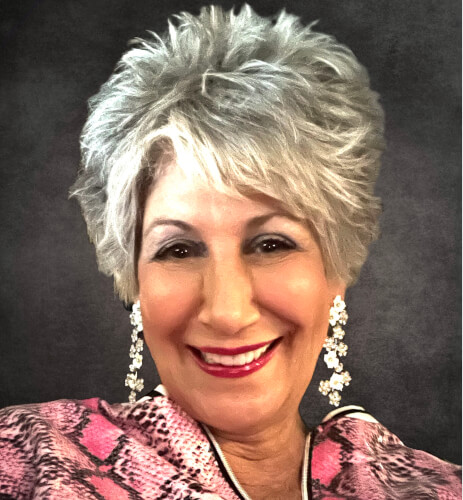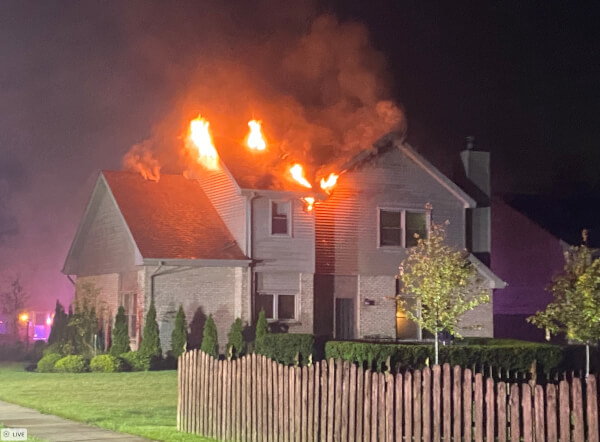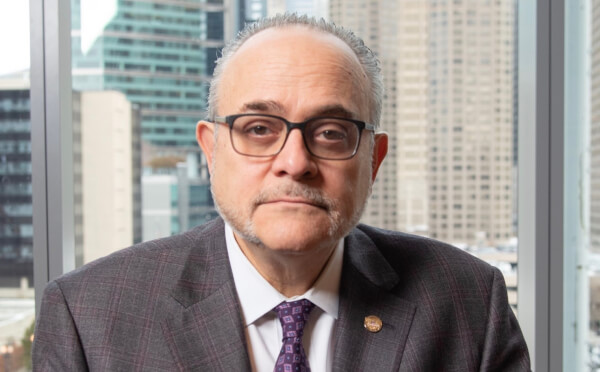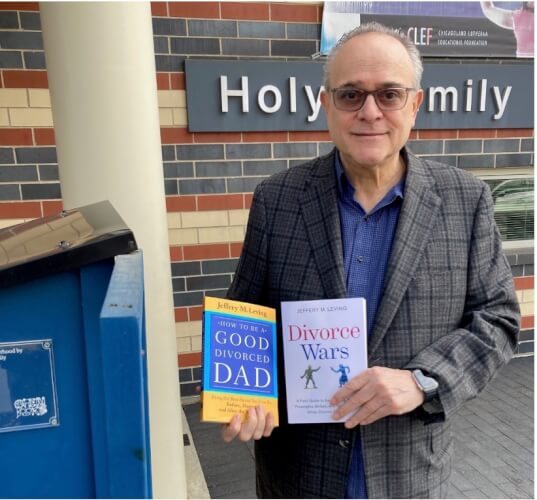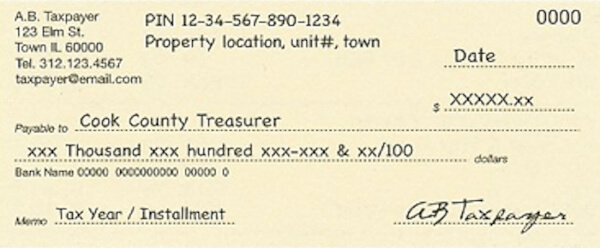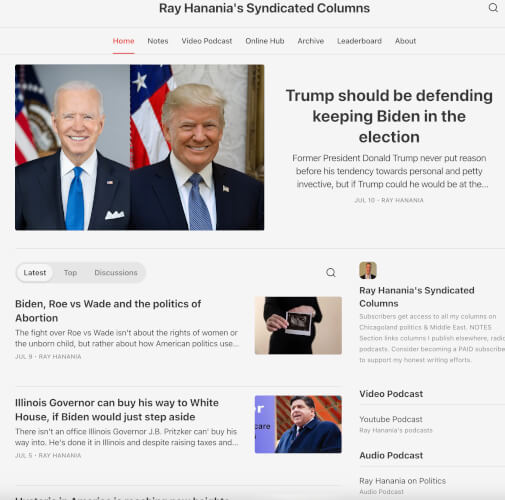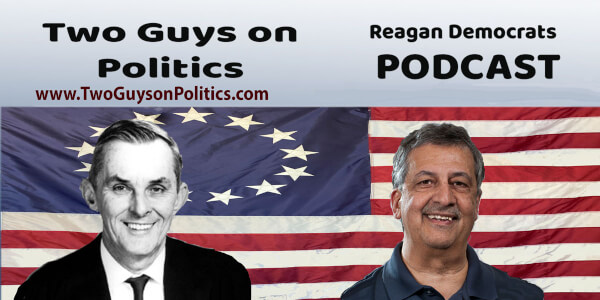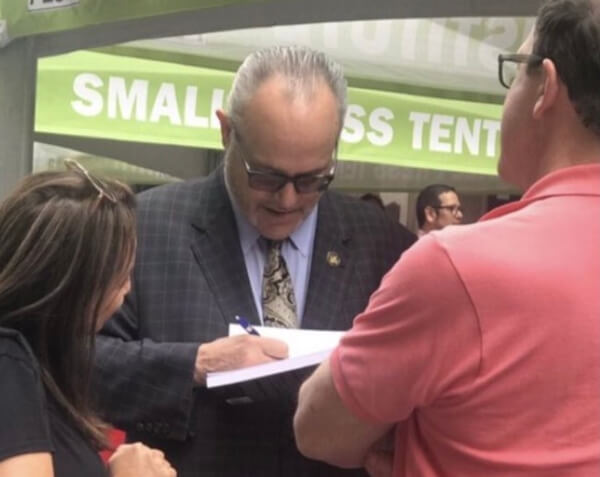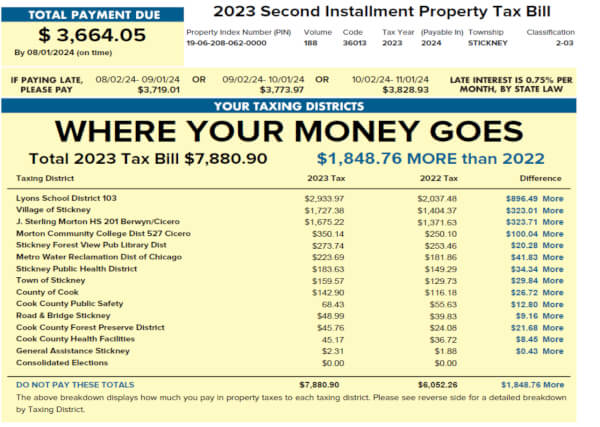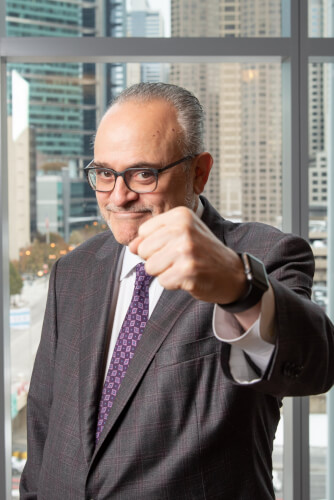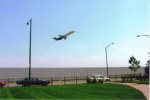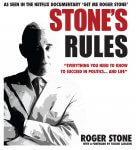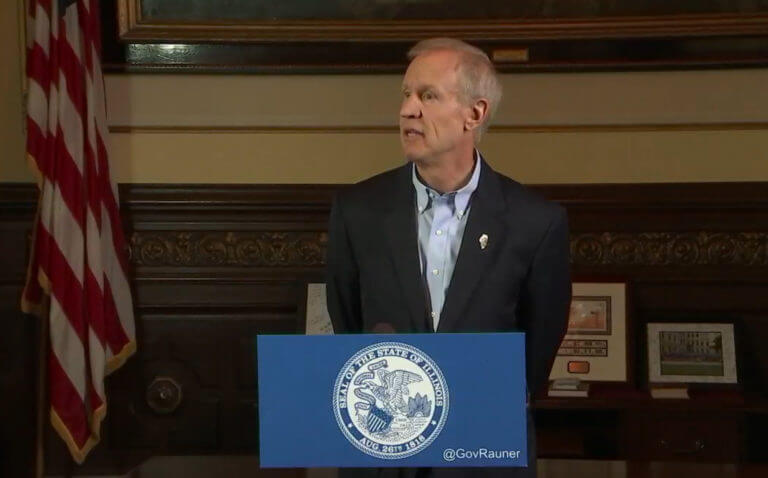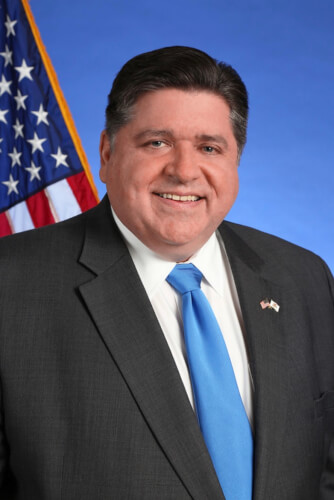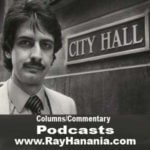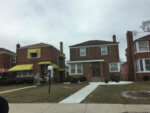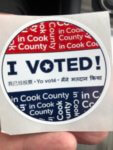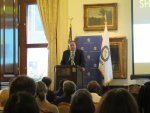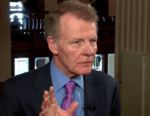30-year anniversary of a Chicago journalist’s passing
Chicago City Hall Journalist Harry Golden Jr., died on May 1, 1988, 30 years ago having documented Chicago’s rollercoaster political scene, and bringing to a final end the era of Front Page journalism. Golden was one of the best journalists in America at the time and has never been replaced. This is an expansion of my column published April 12, 2018 in the Southwest News newspaper group.
By Ray Hanania
I was always lucky as a journalist. I had everything going against me to succeed.
I didn’t graduate from journalism school. I flunked English composition repeatedly in school, evident in my writing even until this day. I’m Arab American and faced constant criticism from activists in the pro-Israel community, even at newspapers where I worked, and was attacked by other Arabs who didn’t understand the power of communications.
Worse, I let my mother down choosing journalism over medicine as my life career path. Arab mom’s want their sons to either be doctors or grocery store owners, not low-paying journalists who only set themselves up for conflict.
Yet when I entered journalism in 1975, luck was on my side.
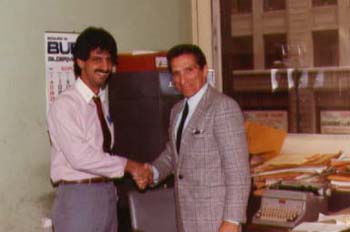
I began by publishing an English-language Arab American newspaper that immediately caught the attention and scrutiny of the FBI. It resulted in a lengthy two-year long FBI investigation into my life that began with the ominous concern that I might be involved in “terrorism” but ending matter-of-factly with the conclusion that I was merely concerned about bettering the lot of Arabs in America.
Recognizing how much more important journalism and communication were to the issues that concerned me, over a medical career, I dropped out of pre-med courses at Northern Illinois University, entered Military service during the Vietnam War to get my head straight, and returned to college at the University of Illinois at Circle studying under political mentor Professor Milton Rakove.
And it didn’t take long for my passion and much fortune to fuel my personal life-long assault on journalism, a profession I believed needed to be saved.
I wrote letter after lengthy letter to the editor of the local suburban newspaper at the time, the Southtown Economist, railing on issues involving media racism, the absence of media fairness and the need for more diversity in newsrooms when the editor of the paper, tired of re-typing my handwritten letters, offered me a job. I grabbed it and started covering education and suburban community events.
But in 1977, sitting in the packed editorial offices of the old twice-weekly Southtown Economist, I was the only one to raise a hand when the publisher asked for a volunteer to cover Chicago City Hall, later to pioneer bureau there. City Hall of my era occupied en entire block bounded by Clark, LaSalle Street, Washington and Randolph streets. It was two blocks south of Chicago’s first City Hall which was located in an old saloon at Lake and Clark Street.
I arrived at City Hall full-time, after covering it for one year from the edges of the city, in the Spring of 1978. It was right about the same time that the boredom of Mayor Michael A. Bilandic’s administration was being swept out by the unpredictability of his former Consumer Sales & Weights and Measures commissioner, Jane M Byrne.
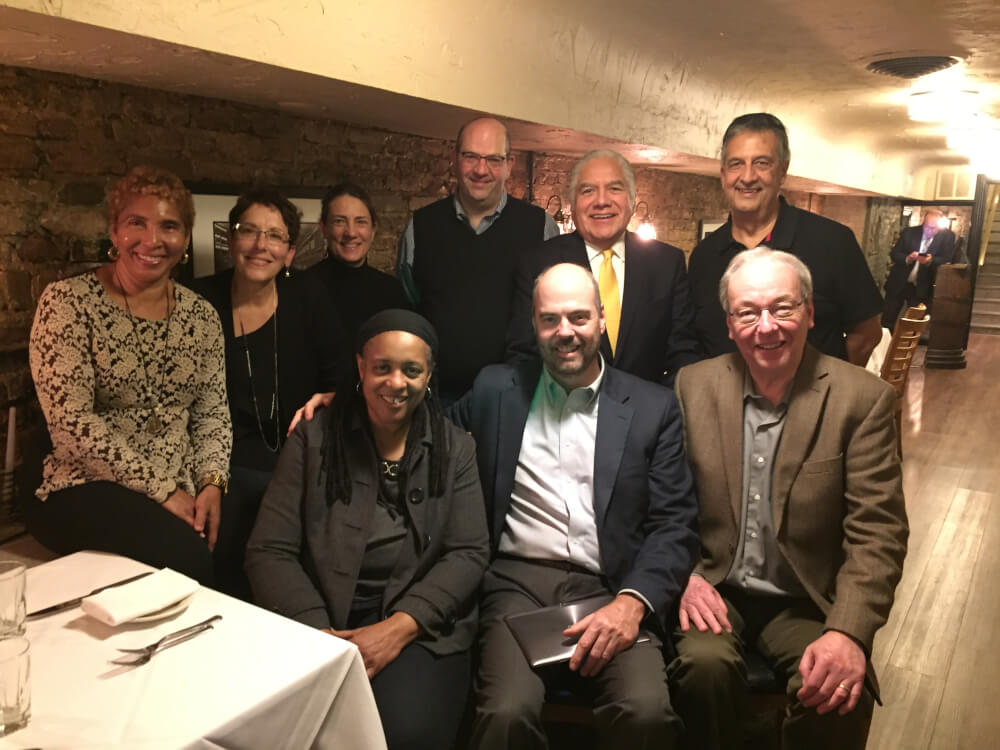
Most importantly, I met a good friend, someone who would mentor my career and give me the boost I needed to help me in professional journalism. Harry Golden, Jr., got the Chicago Sun-Times to hire me in 1985.
Harry was the journalist’s journalist. The guy had no biases. He called it just the way it was, good, bad or ugly. His writing was powerful. The guy was a true wordsmith, slamming away at his black Underwood typewriter, and later a grey Royal typewriter, like a baseball player with a .300 or higher batting average. He had a brutal honesty that was pure accuracy. And he rarely missed.
Golden ruled Chicago City Hall from his roost in the 2nd Floor Press Room that today carries his name. When he wasn’t slamming out scoops, Golden was carefully snipping articles from the Sun-Times newspaper (and others, too), carefully folding them and then indexing them like a librarian in a wall of small library drawers located behind his desk which over-looking LaSalle Street.
Down below on LaSalle Street, the late attorney Roland V. Libonati, who built his career as a state legislator and later congressman representing Chicago’s near West Side after defending Al Capone in court, stood on the sidewalk with an opened briefcase and negotiated city services, political perks and favors with aldermen, committeeman and political wannabes.
Golden was a wealth of stories. He’d often regale the press room with stories about journalism in the 1960s, great reporters like Ed Schreiber, Frank Sullivan, Jay McMullen, and Mike Royko. A lot of the stories had to do with Chicago Police officers having to drive drunken City Hall reporters back to their suburban homes, as a favor to some alderman.
Golden’s father was a friend and biographer of the poet Carl Sandburg. Harry Golden Senior published his own newspaper, “The Carolina Israelite,” and authored nine books, including “Only in America.” Harry Junior was his father’s book editor.
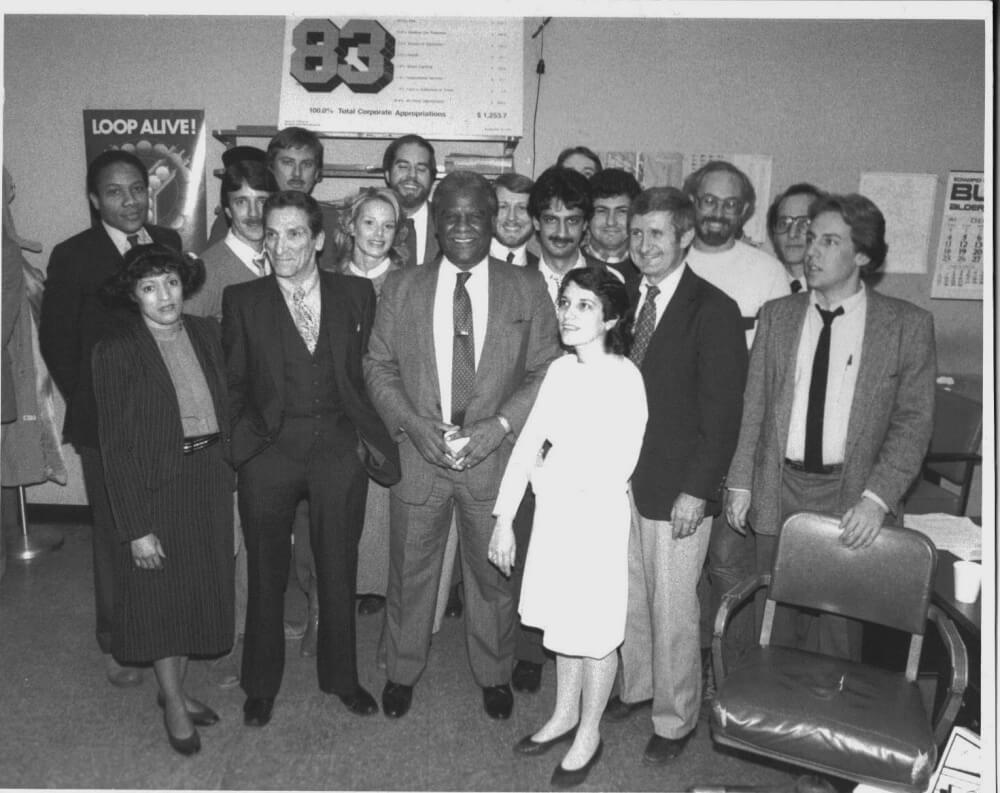
Golden favored me and helped get me my job at the Sun-Times, in a large part because he never stopped thanking me for serving during the Vietnam War. Golden served during the Korean War before working for the Charlotte Observer, the Detroit Free Press and eventually the Sun-Times.
He strode City Hall wearing Giorgio Armani suites, and had his hair cut every week in the lower level of the county courthouse building, even when he really didn’t need a haircut.
You didn’t have to strain to hear Golden calling in by telephone his city budget exclusives with his gravely-voiced Brooklyn accent.
Golden would quietly walk out of the City Hall press room and find a phone in the open hallway offices of the sergeant-at-arms Michael V. Colletta where he would call in his exclusives by telephone, eschewing the computers that were fast making their way into journalism. All the reporters would hush and you could hear Golden’s course worse waft through the hallway, “Mayor Jane M. Byrne … told me her new budget …” Golden’s whisper’s sounded like a lion’s growl.
When he broke his many scoops, he would crow loudly about his “good stawwee!”
Golden, recognized as the “Dean” of the Chicago City Hall press corp, knew every nook and cranny of the City Hall building, and every source that possibly could whisper insight into the actions of the mayor, floor leaders and aldermen.
And he had a very personable side, too. Golden once told one of Alderman Fred Roti’s nieces that she looked more beautiful than a Cardinal in the Spring, to which she responded with a smile and her own New York-like accept, “Ha-wee … you ha-ba way wit woyds!”
There were many great reporters who covered Chicago City Hall with Harry during the between the death of the late Mayor Richard J. Daley and the rise of his son Richard M. Daley, including the Chicago Tribune’s Robert Davis, who died in 2003 at the age of 61, WBBM Radio’s Bob Crawford, who is retired, and WMAQ Radio’s Bill Cameron, who still reports on Chicagoland politics.
Golden was 60 when he died of cancer on Sunday, May 1, 1988 in his home in Glen Ellyn, Illinois.
(Ray Hanania is an award-winning columnist author and former Chicago City Hall reporter. Reach him through his website at www.Hanania.com or by email at rghanania@gmail.com.)
